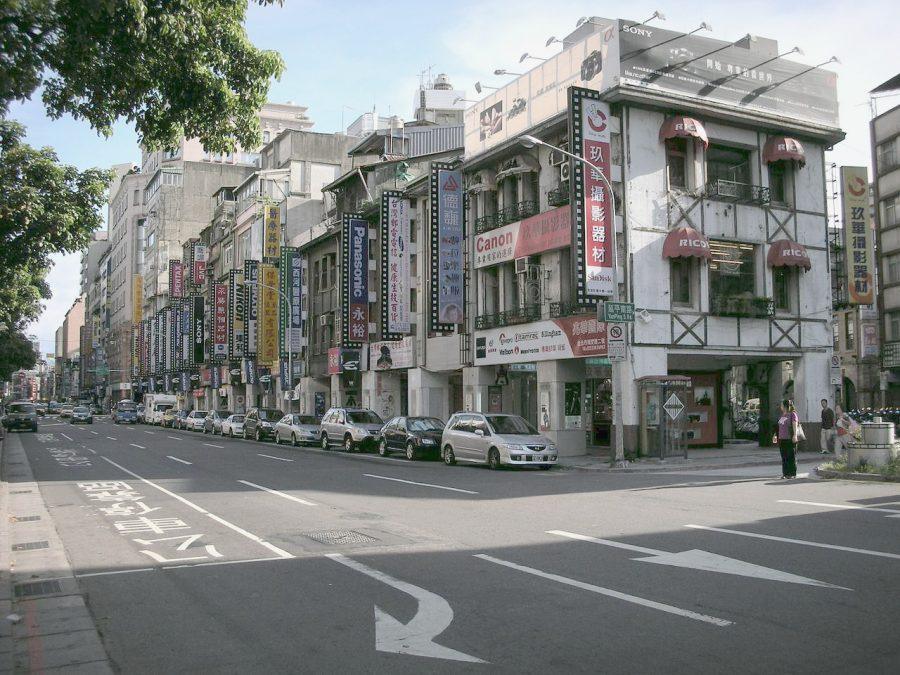From my perspective, “Westernization” is simply a big word used to deny cultural ignorance, regarded with underlying airs of altruism. For better or worse, Western culture has imposed large-scale influence on the reform of societies and cultures of the Eastern hemisphere since the 1400s. Historically in East Asia, there have been many attempts to completely eradicate this influence, especially to establish a stronger sense of national identity. Yet despite these efforts, keeping up with American and Western norms has become a survival mechanism in a Western-dominated world, usually at the expense of customs and traditions of other cultures.
Because the fields of business and commerce are dominated by European and American enterprise, the development of non-Western businesses often requires fluency in English for communication. Even on a local level in Taipei, knowing basic English is an asset to businesses. The Taipei Bureau of Education enforces English learning in local schools, while many Taiwanese parents enroll their children in English cram schools and SAT prep because a Western-style education is considered a gateway to acceptance into prestigious American colleges and opportunities for better jobs. Situations of influence like this lead people to pursue westernization to conform to mainstream Western culture.
There is a widespread, ethnocentric conviction that Western countries are the most urbanized and advanced—that they sit at the highest perceived social status in the world. This attitude feeds the general illusion that the Western world is the epitome of modernity. But are the social systems of capitalism and Western consumerism truly the main components of modernity? Or rather, is Western culture simply the most prominent culture? These social systems are tools to promote civilization, but the spread of Western ideology should not be equated to societal advancement. It may be difficult to differentiate Westernization and modernization, but it is crucial for advocating cultural diversity instead of abiding by the dominance of Western culture.
Unfortunately, Westernization is inevitable and as Westernized as Taiwan has become, there is no return to the customs and traditions that have been compromised in the cultural assimilation that occurs through the constantly growing Taiwanese expat community. That said, at Taipei American School, we as students are privileged to learn from multiple perspectives of different nationalities, political parties and cultures. We should continue to be open to these new perspectives, because the priorities for our future should not be completely directed by the pursuit of success in a world dominated by Western bias. It is more important to take pride in one’s individual cultural identity.
Be thoughtful when drawing conclusions about other cultures—which means boycotting social stigmas about the hegemony of Western powers and not judging other cultures through the lens of the culture you are most biased towards or familiar with. In a world of merging and contrasting cultures, it is best to validate all cultural backgrounds. This is the kind of awareness that will lead to the celebration of cultural diversity.
OPINION | Westernization is not a necessity in the modern world
January 12, 2018
0
Tags:
More to Discover


![A collection of college flags. [PHOTO COURTESY OF AMBER HU ('27)]](https://blueandgoldonline.org/wp-content/uploads/2025/05/IMG_5029-1200x577.jpeg)

![An SAT word cloud. [PHOTO COURTESY OF WORDCLOUDS]](https://blueandgoldonline.org/wp-content/uploads/2025/05/SAT.jpeg)
![Collage of banned books, including “The Handmaid’s Tale” by Margaret Atwood. [MINSUN KIM/ THE BLUE & GOLD]](https://blueandgoldonline.org/wp-content/uploads/2025/04/IMG_4274-1200x681.jpeg)

![A collage of dark romance book covers from an online store for dark romance novels. [PHOTO COURTESY OF TRILOGYOFROMANCE.COM.AU]](https://blueandgoldonline.org/wp-content/uploads/2025/04/IMG_4272-1200x600.png)